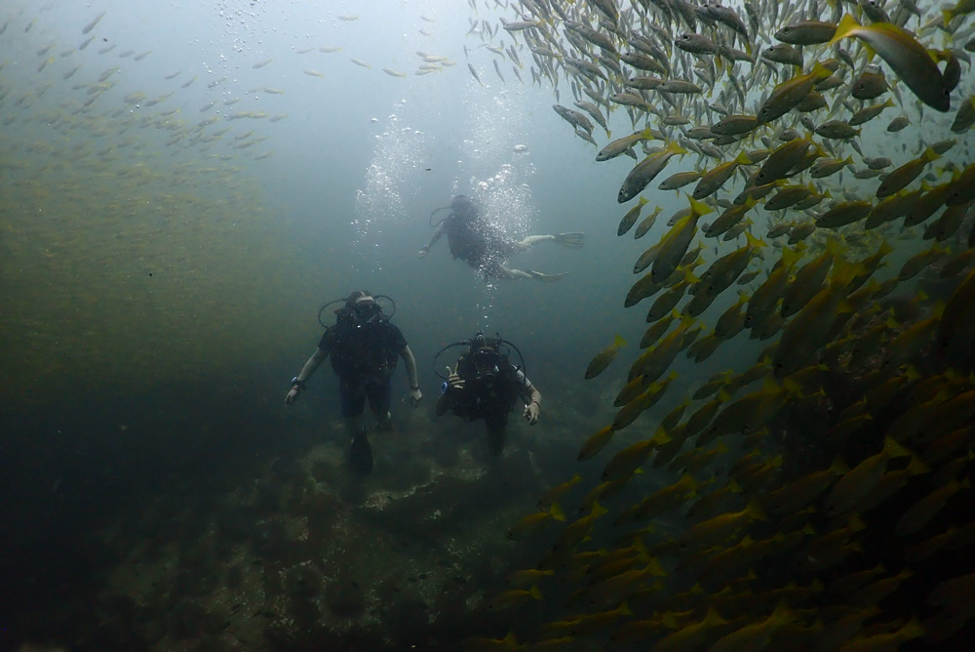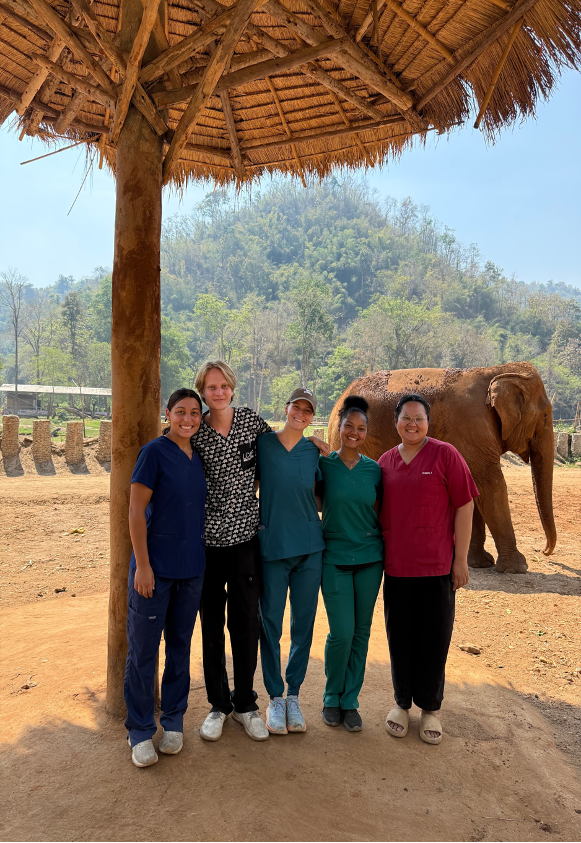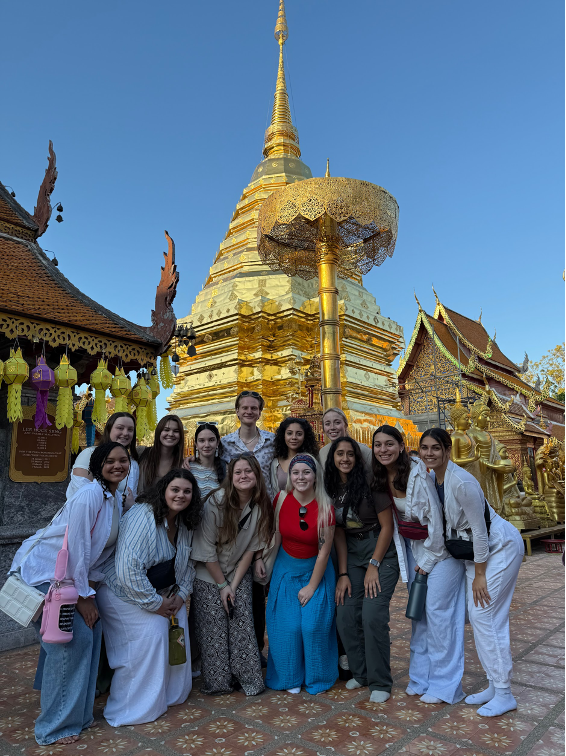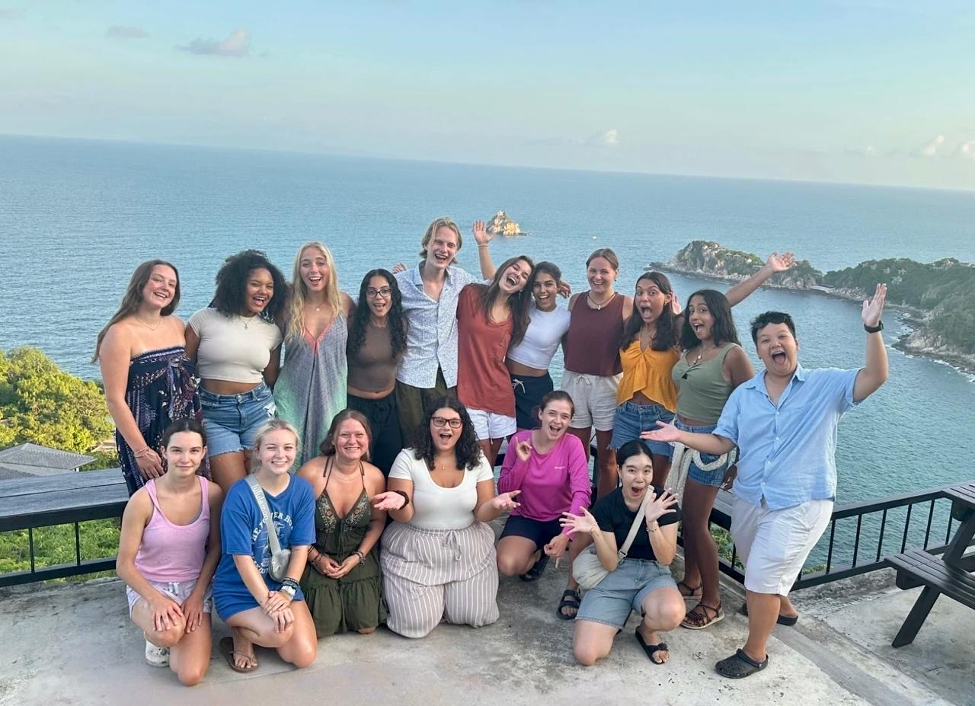By Henry Ewing-Crystal ’26
During the last couple of weeks of my semester abroad in Thailand, we were brought to Koh Tao (or turtle island), where I got scuba certified and started going on conservation dives. Throughout the process of becoming certified, three cardinal rules were drilled into my head, all of which I found to be applicable to my time abroad.

1. Always Keep Breathing

In SCUBA diving, due to Boyle’s law, as you go up in the water, the air inside your lungs expands, and can lead to overexpansion issues if you hold your breath. Therefore, one of the most important rules of scuba diving is to never hold your breath. This also helps you to remain calm, and (counterintuitively) conserve air. I think the same thing applies to studying abroad. Being suddenly thrust into an entirely new environment and culture can sometimes feel like being underwater. You don’t really know what you’re doing, everything is unfamiliar, and it can feel like you’re all on your own. This can be overwhelming, and sometimes it might seem to be too much for you. But, like in scuba diving, just keep breathing. Everything will eventually right itself, and you’ll be in a new, fascinating world that you will find yourself never wanting to leave.
2. Ascend Slowly and In Control

When you’re scuba diving, many of the gasses that you’re breathing in dissolve in your bloodstream. If you go up too quickly, those gasses expand and form bubbles. This is called decompression sickness (or more commonly, the bends). In order to avoid this, we were told that when ascending, always stay in control, and never try to go up too quickly. When you’re abroad, you might feel like there’s so much to do and experience, and do everything at once, or you might get overwhelmed and want to get back to comfort as fast as possible. Neither of these will lead to a fulfilling experience abroad. Just like with decompression, we do best with gradual change. Yes, everything might seem new and scary, but give it time, and everything will work out in the end.
3. Never Dive Alone
The most intuitive, and most important rule we were taught is that no one, not even the most experienced diver, should ever go down on their own. A dive buddy will hold you accountable to make sure everything is safe, be there in case something goes wrong, and make the experience more fun for everyone. Similarly, in study abroad, it is not an experience that you are going through alone. In my group there were thirteen other people and we constantly leaned on and relied on each other when we needed it, making the trip not only survivable, but immensely more enjoyable. I promise you are not the only one in your group going through whatever issues you may be going through, and trouble shared is half the trouble.
I didn’t know it at the time, but throughout my semester abroad, I had been following these three rules of SCUBA every day. It’s what helped me not only get through, but enjoy and make the most of each new experience, from helping to slay/neuter over 165 cats and dogs in a week, to helping out with pro-bono veterinary work around various shelters and temples, to working with rehabilitated elephants, and throughout my ecological dives and sea turtle rehabilitation. These three rules helped me have the best semester of my life.



